I have a asyncio server, which is an example from the TCP Doc. However I'm connecting to it using pyzmq and when the reader on the server tries to read I get a decode error. Any hint is highly appreciated. I've already tried encoding to utf-8 first, didn't help.
Server: (Python 3.6)
import asyncio
async def handle_echo(reader, writer):
data = await reader.read(100)
print(data)
message = data.decode()
loop = asyncio.get_event_loop()
coro = asyncio.start_server(handle_echo, '127.0.0.1', 5555, loop=loop)
server = loop.run_until_complete(coro)
loop.run_forever()
Client: (Python 2.7)
import zmq
context = zmq.Context()
socket = context.socket(zmq.REQ)
socket.connect ("tcp://localhost:%s" % 5555)
socket.send("test")
Full Trace:
future: <Task finished coro=<handle_echo() done, defined at "E:\Projects\AsyncIOserver.py:3> exception=UnicodeDecodeError('utf-8', b'\xff\x00\x00\x00\x00\x00\x00\x00\x01\x7f', 0, 1, 'invalid start byte')>
Traceback (most recent call last):
File "E:\Projects\AsyncIOserver.py", line 6, in handle_echo
message = data.decode()
UnicodeDecodeError: 'utf-8' codec can't decode byte 0xff in position 0: invalid start byte
